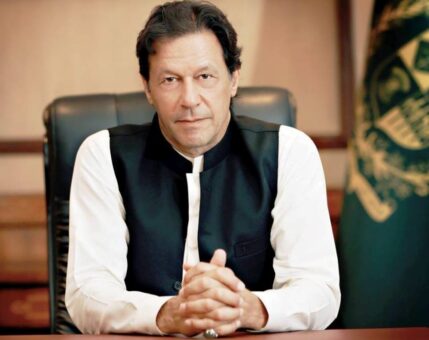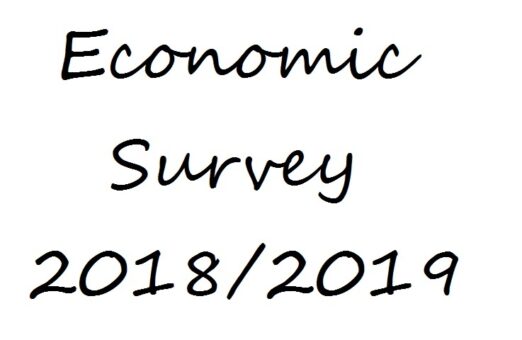ISLAMABAD: The government has started easing burden of indirect taxes to provide relief to the masses. In this regard Prime Minister Imran Khan has issued instructions to relevant ministries for preparing proposals.
Meeting of the Federal Cabinet was chaired by Prime Minister Imran Khan at Islamabad on Tuesday.
The Prime Minister apprised the meeting that relevant ministries have been directed to present proposals for reducing the burden of indirect taxes, particularly on food items in order to provide relief to the masses.
The federal cabinet approved Tax Laws (Amendment) Ordinance 2021. These amendments are aimed at facilitating transaction under Digital Roshan Pakistan scheme.
It was apprised that $ 500 million have been transacted through Digital Roshan Pakistan scheme so far.
The Cabinet accorded approval for 3 months extension of Afghanistan-Pakistan Transit Trade Agreement (APTTA 2010). The existing agreement is due to expire on 11th February, 2021.
The Cabinet was also briefed about the measures taken to control smuggling at Pak-Iran and Pak-Afghanistan borders.
The Cabinet expressed serious concerns over the report, according to which Sindh Government released 32,000 tons of wheat that was a 6 years old stock and unfit for human consumption.
The Cabinet noted that Sindh did not release wheat timely for public need and did not share Wheat and Sugar stock position with the Federal Government which resulted in artificial price hike and issues of hoarding, on one hand, and wastage of available wheat stock that could have been utilized for public good.
The Cabinet was apprised about the updated status of actions taken pursuant to Sugar Enquiry Committee Report. It was informed that several sugar mills had approached courts of law and action is underway after completion of court proceedings. The Cabinet was also informed that NAB was looking into the issue of subsidies.
Chairman, Task Force on IT & Telecom briefed the Cabinet about progress made for development of IT and Telecom sector.
The Cabinet was updated on Vacant Positions of Heads / CEOs of Public Sector Organizations. It was informed that since 2018, 56 Heads / CEOs have been appointed to Public Sector Organizations in a merit based and transparent manner.
The meeting was informed that at present 86 posts of heads/CEOs were vacant. The Prime Minister expressed displeasure over the vacant positions and directed Secretary Establishment Division to furnish a report before the Cabinet citing reasons for delay in appointments.
The Cabinet was apprised about Metro Bus Project, Islamabad. Chairman NHA informed that infrastructure work has been completed and the project is ready to be handed over to CDA. Minister for Interior was tasked by the Cabinet to present a road-map for handing-over of the project from NHA to CDA and operationalization plan.
The Cabinet accorded approval for Mutual Legal Assistance requests from Non-Treaty Countries.
The Cabinet approved appointment of Chief Metropolitan Officer as Administrator, Metropolitan Corporation, Islamabad for 6 months or till the time new Local Government setup is in place, whichever is earlier.
The Cabinet approved establishment of 30 Additional Accountability Courts in implementation of Hon. Supreme Court’s orders. These courts are to be established in Karachi, Lahore, Multan, Peshawar, Rawalpindi, Sukkur, Hyderabad and Quetta. The Prime Minister directed that first phase of establishment be completed on priority.
The Cabinet approved appointment of Masroor Khan as Chairman, Oil & Gas Regulatory Authority (OGRA).
Cabinet ratified decisions taken in Economic Coordination Committee (ECC) meeting held on 3rd & 8th February, 2021; and Cabinet Committee on Energy meeting held on 4th & 8th February, 2021.
The Cabinet was briefed on negotiations held with Independent Power Producers (IPPs). It was informed that the Government will benefit to the tune of Rs. 800 billion over a period of 20 years. It was apprised that the present Government is clearing a liability of approx. Rs. 400 billion after pre-audit. The Cabinet was apprised that a high level committee has been established comprising of two Hon. Supreme Court Judges and the Auditor to decide on the disputed amount of Rs. 57 billion claimed by IPPs. The Cabinet was informed that as a result of negotiations, the Government saved Rs. 32 billion against an adjudicated claim of Rs. 92 billion by IPPs. It was clarified that the Government has not surrendered any of its rights in the negotiations process. The Cabinet was informed that this process will result in a direct benefit of reduction in energy prices for the consumers. The Cabinet appreciated efforts of the Negotiations Committee.
The Prime Minister directed that unscheduled load shedding should not be practiced in any part of the country and directed Minister for Energy to conduct in-depth investigations for load-shedding occurring due to technical reasons.
The Cabinet accorded approval for exemption of PPRA regulations for import of 300,000 tons Wheat and 500,000 sugar.

